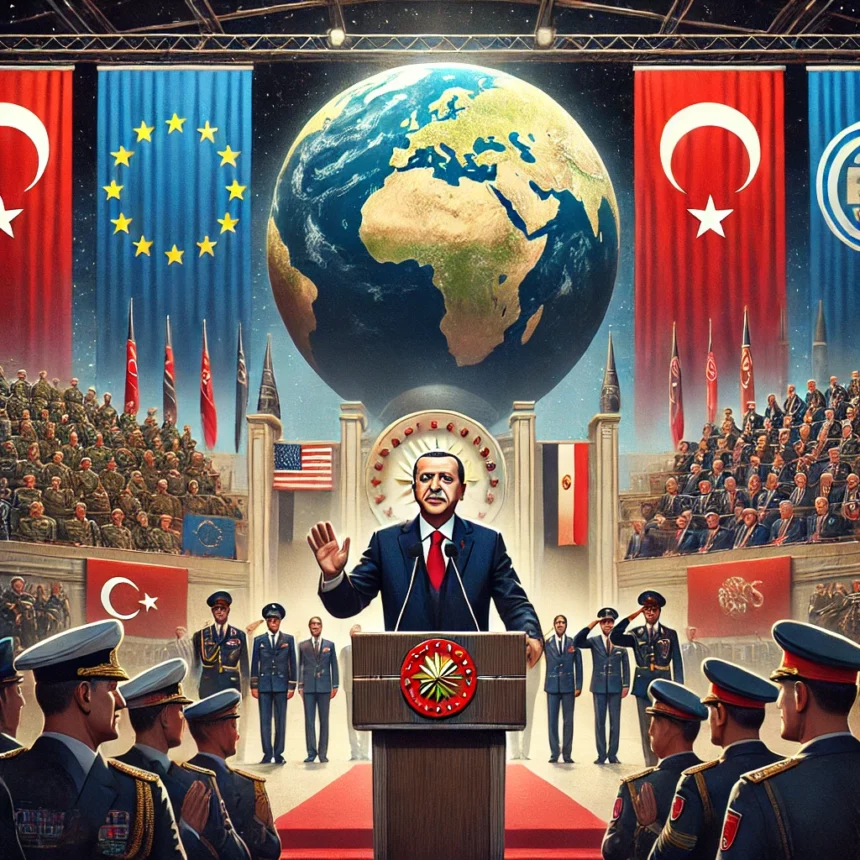To broaden its global influence and fortify its relationships beyond its conventional Western allies, Turkey has submitted a formal application to become a member of the BRICS group of emerging-market nations.
According to anonymous sources, President Recep Tayyip Erdoğan’s government believes that the global balance of power is shifting away from industrialized economies, prompting this step. Turkey’s diplomatic initiatives aim to strengthen partnerships throughout a multipolar world while adhering to its commitments as a vital NATO member, they said.
Turkey’s BRICS application, which was made many months ago, comes amid displeasure with the slow progress in its long-standing ambition to join the European Union, according to Bloomberg sources. The decision is also impacted by poor relations with NATO members, as Turkey maintained tight connections with Russia following its 2022 invasion of Ukraine. The Turkish foreign ministry and presidency declined to comment on the application.
BRICS, an acronym for Brazil, Russia, India, China, and South Africa, has lately grown to include Iran, the United Arab Emirates, Ethiopia, and Egypt. Saudi Arabia was invited to participate but has yet to do so. The idea of additional growth could be explored during a BRICS summit in Kazan, Russia, on October 22-24, with Malaysia, Thailand, and Azerbaijan all showing interest.
The BRICS group positions itself as a viable alternative to Western-dominated institutions such as the World Bank and the International Monetary Fund. New members might have access to money through the group’s development bank, as well as the potential to expand their political and trade contacts.
Erdoğan’s administration has long accused Western nations of impeding Turkey’s aims for a self-sufficient defence sector and a robust economy. Erdoğan has previously campaigned for revamping the United Nations Security Council and shown interest in joining the Shanghai Cooperation Organisation, a bloc led by Russia and China to counterweight NATO.
China has been a main driver of BRICS expansion, attempting to boost its global influence by recruiting countries that have historically supported the United States.
Turkey, which has been in the process of negotiating EU membership since 2005, sees its membership in BRICS as a chance to strengthen its economic relations with China and Russia, as well as to establish itself as a trade hub between the EU and Asia. The country is also looking to attract investment from Chinese electric vehicle makers, potentially using its customs union with the EU to improve market access.
Turkey’s decision to apply for BRICS membership reflects its ongoing dissatisfaction with the lack of progress in its EU accession process. Turkey’s negotiations for EU membership have been ongoing since 2005, but progress has been hindered by recurring political and economic disparities, human rights apprehensions, and complications surrounding Cyprus. Turkey’s search for alternative avenues to expand its influence and economic partnerships comes as a result of the stagnant progress in EU accession talks.
In addition, Turkey’s relations with several NATO members have become tense, especially after it developed strong connections with Russia following the latter’s invasion of Ukraine in 2022. These ties have sparked concerns among NATO allies regarding Turkey’s dedication to the alliance, despite Turkey’s ongoing emphasis on its strategic role within NATO. The decision to pursue BRICS membership may be influenced by the current strained relations and a goal to establish stronger connections with non-Western powers, particularly Russia and China.
According to Foreign Minister Hakan Fidan, Turkey’s pursuit of EU membership remains a “strategic target” in spite of the BRICS application. He recently held informal conversations with EU counterparts for the first time in five years, indicating that efforts to revive membership negotiations are progressing.
Turkey is particularly interested in fortifying its economic relationships with Russia and China. China has been eager to expand its global influence by recruiting countries that have historically been aligned with the United States, as it is a primary driver of BRICS expansion. For Turkey, the establishment of more robust economic relations with China could present new opportunities for investment, infrastructure development, and trade, particularly in the fields of renewable energy and technology.



